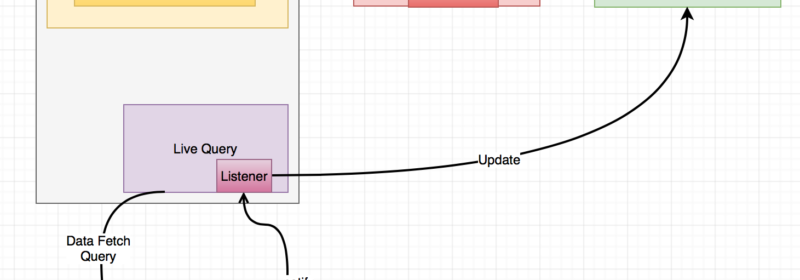Category: Java

Exploring RxJava – Wrapping a Listener Callback
In this post, I’ll show how to convert a callback-based listener style API to a reactive one with RxJava 2. Contents Introduction Objective Getting Started Creating a Source Listing: BasicSource.java Listing: UnboundSource.java Converting to an Observable Listing: Observables.java Instantiation and...

How to log queries generated by Spring Data
One of the ways to improve your application performance in Couchbase is to create indexes for common queries. However, when you are working with Spring Data using its standard DSL, the generated query is not very clear, which makes a...

NDP Episode #25: Nathan Voxland on Liquibase
Liquibase is the focus of the latest episode of The NoSQL Database Podcast. Nathan Voxland joins as the special guest to talk about source control for your database. I’m also joined by special co-host Denis Rosa, a developer advocate who...

What Is Fuzzy Matching and How to Use It Correctly
Have you sound yourself asking the question, “What is fuzzy matching?” Fuzzy matching allows you to identify non-exact matches of your target item. It is the foundation stone of many search engine frameworks and one of the main reasons why...

Spring Security & Dynamic Client Registration | OAuth Part 3
We already discussed how to configure an OAuth 2.0 authentication and how to build a custom token store. In the last article of this series, you will learn how to implement a custom dynamic client registration using spring-security-oauth2. I recommend you...

How to Create a Custom Token Store for Spring-Security-Oauth2 | OAuth Part 2
In the previous blog post, we discussed how to configure a simple OAuth2 authentication. However, our implementation has a major flaw in it: we are using an in-memory token store. In-Memory token stores should be used only during development or...

How to Configure OAuth2 Authentication With Spring-Security-Oauth2
As you might have noticed in my previous blog posts, I am a big fan of Spring + Java and Spring + Kotlin. Consequently, whenever I need to implement an OAuth 2.0 authentication, spring-security-oauth2 lib is a natural choice. However,...

Processing GraphQL Queries with Java, Spring Boot, and NoSQL
Over the span of the past few months I’ve been learning about GraphQL and how to use it as an alternative to RESTful API development. The focus thus far had been around GraphQL and Golang as well as GraphQL and...

Inside the Java SDK: Connection Management
In this second instalment of “Inside the Java SDK” we are going to take an in-depth look at how the SDK manages and pools sockets to the various nodes and services. While not ultimately necessary to follow, I recommend you...

Inside the Java SDK: Bootstrap
From time to time we get questions on topics that do not directly fit into the documentation since they dig deeper into the internals of the client libraries. In this series we’ll cover different themes of interest – in this...

Tutorial: RecyclerView with Couchbase Lite as Data Source in Android
The RecyclerView widget is a popular option on the Android platform for efficiently displaying dynamic data collections .Couchbase Lite 2.0 is a powerful NoSQL embedded data store for iOS, Android and .Net Mobile Platforms. In this post, we introduce a...

Response Time Observability with the Java SDK
Previous blogs gave a better understanding on how our approach to Real Time Observability (RTO) in general helps troubleshooting distributed systems and why we chose OpenTracing as a foundation and public API. If you haven’t already, you can check out...
